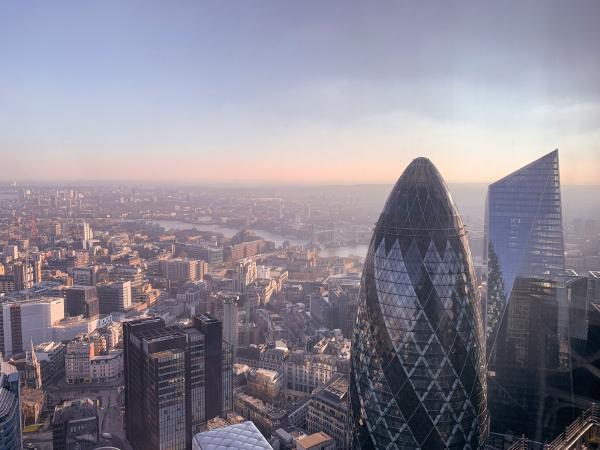by Shazre Quamber-Hill, Director, Network Strategy and Impact, Resilience First
As part of our commitment to drive resilience at scale, Resilience First will be working closely with the UN High-Level Climate Champions’ (HLC) teams and the Race to Resilience Campaign, which some of our members have been engaged with since 2021. In this regular series, we will be keeping you up to date with the key highlights and activities within the current Egyptian presidency, and as well as what to expect for COP28 as preparations get underway.
Spring Roundup
March kicked off with a key partnership announcement from the incoming COP presidency, with Michael R. Bloomberg, the UN Secretary-General’s Special Envoy on Climate Ambition and Solutions and founder of Bloomberg L.P. and Bloomberg Philanthropies, joining COP28 UAE President-Designate Dr. Sultan Ahmed Al Jaber to accelerate meaningful climate action from cities, businesses, financial institutions, and civil society at and ahead of COP28. Highlighting the need for COP to become ‘a Conference of all Parties” (Dr. Sultan Al Jaber, COP28 President- Designate), the commitment from Bloomberg Philanthropies focuses on galvanising action on three critical fronts: supporting the energy transition, accelerating capital mobilisation and catalysing city, state and subnational action.
Energy continues, unsurprisingly, to remain the big issue for COP28. While the EU has called for a phase-out of unabated fossil-fuels, and for worldwide targets on renewables, the incoming presidency wants to direct efforts towards phasing out emissions, focusing on expanding carbon capture and storage technologies leading to much debate and pushback including from Christiana Figueres, who was pivotal to the delivery of the landmark Paris climate agreement in 2015. This wasn’t the only controversy to hit the incoming presidency in recent weeks, with the invite list (which includes, for the first time since 2011, Syrian President Bashar al-Assad) also raising more than a few eyebrows. Representatives of COP28 maintain that they are “committed to an inclusive COP process that produces transformational solutions.” adding “This can only happen if we have everyone in the room.”
Global Stocktake prepares to move into phase three
COP28 will mark the conclusion of the first global stocktake of the Paris Agreement (GST). GST is a two-year process that takes place every five years and assesses the global response to the climate crisis. The GST is designed to accelerate climate action and hold the international community accountable for delivering on its commitments, by gathering and analysing data on the implementation of the Paris Agreement. The three key phases; collecting and preparing information, technical assessment (to conclude in June this year), and presentation of key findings at COP, evaluates global progress on efforts to i) slash emissions in order to limit global temperature rise to well below 2 degrees C; ii) build resilience to impacts of climate change and iii) mobilise finance at scale to accelerate climate action.
Draft Programme Announced
With just over 6 months to go, the announcement of the draft programme for COP is a key moment signalling the priorities and focus of the incoming presidency. This year’s programme moves away from focusing days on Paris Agreement pillars, aiming to “address them through real world sectors where multiple pillars typically apply”.

Source: COP28.com
COP28 will open on Nov. 30th, with technology and Innovation, Inclusion, Frontline communities, Finance, Adaptation and Loss & Damage expected to be cross cutting across all thematic days. In a break from tradition, the last two days have been left open to allow for a focus on finalising negotiations.
It is not just programming that is being refreshed this year, the physical event space and layout is also being re-considered with a view to a more constrained blue zone with shared pavilions to facilitate deeper collaboration between parties. Both the programme and event organisation are subject to further changes over the summer, and we’ll be keeping a close eye on how things develop.



